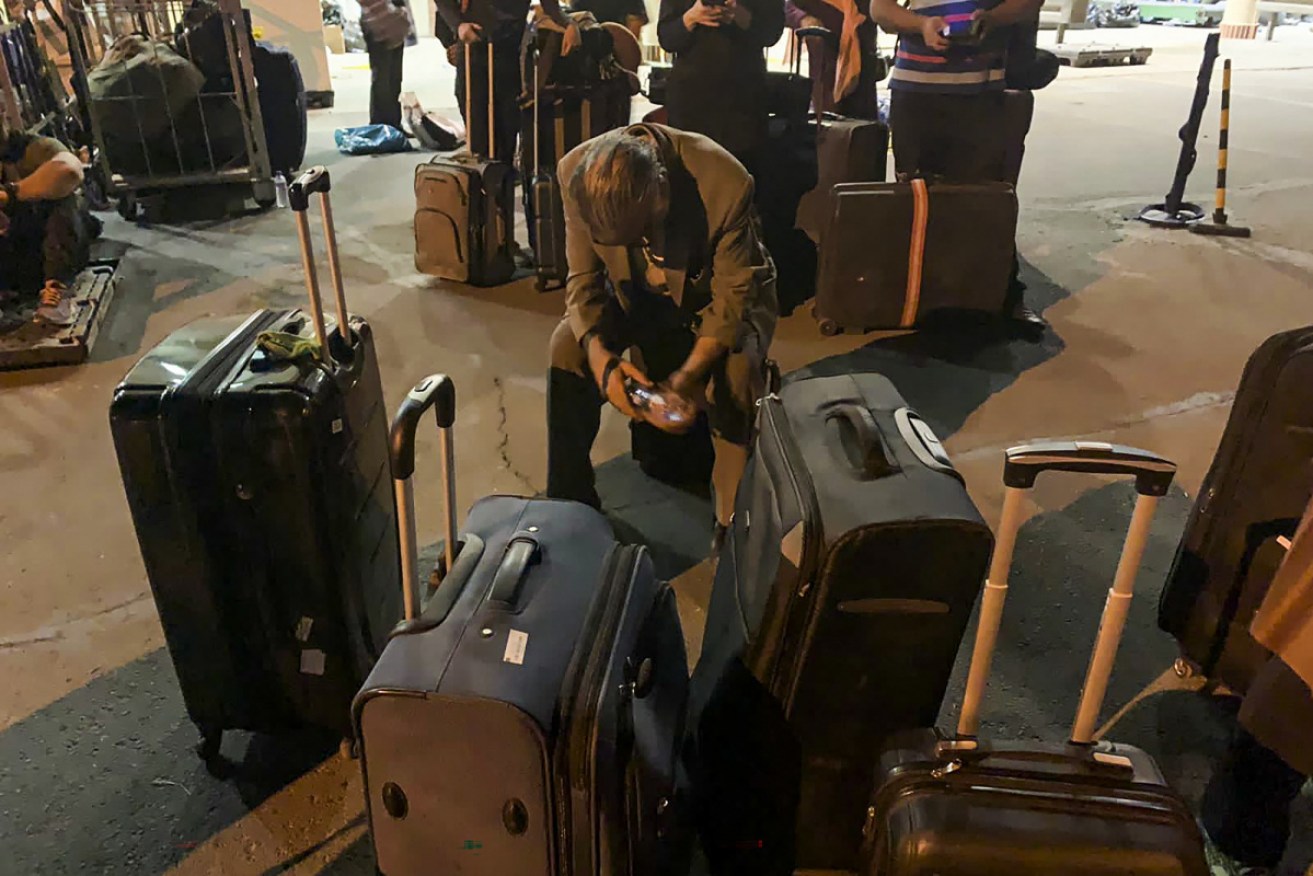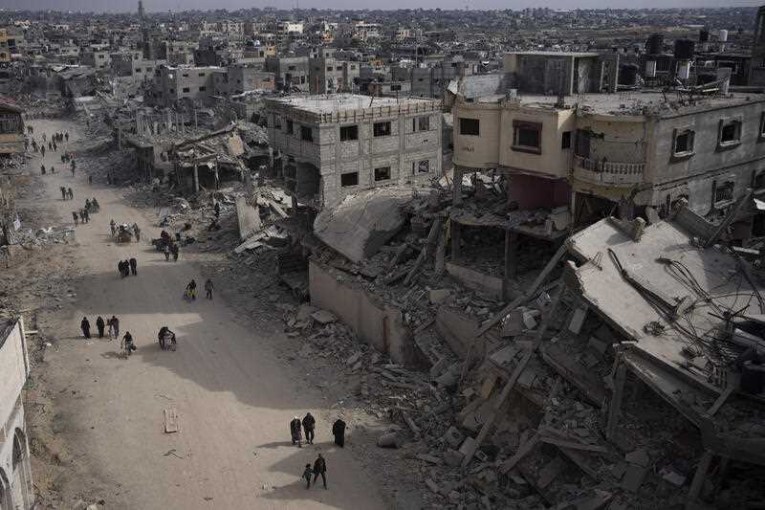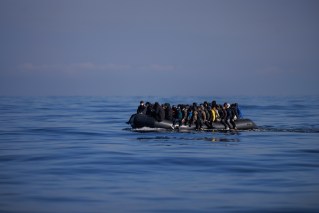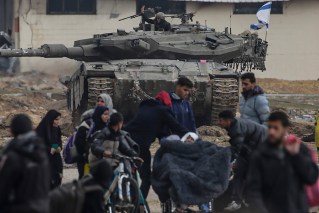Amid reports Taliban is blocking evacuees, the desperate fear Australia will leave them behind


Hundreds of Afghans who helped Australian forces are likely to be left behind in the chaos. Photo: Getty
Australian war veterans fear that more than 200 Afghans who supported them and their fellow soldiers over the past two decades will be left behind in Afghanistan.
The Australian government hopes to evacuate some 600 people from Kabul after committing 250 troops to a series of rescue missions.
Only 26 people were flown out of Kabul on the first Australian evacuation flight on Wednesday.
Compounding the fears people will be abandoned are reports the Taliban is blocking Afghans from leaving and that already three people have been killed for protesting the regime.
“It’s a complete disaster. The Taliban were firing into the air, pushing people, beating them with AK47s,” said one person who was trying to get to Kabul airport.
US Deputy Secretary of State Wendy Sherman said on Thursday morning the US was aware of the reports.
Ms Sherman made the remarks at a news briefing in Washington, where she said in the last 24 hours US military flights had evacuated approximately 2000 more people.
The Group of Seven nations is due to discuss the evacuation effort and seek to co-ordinate flights at a virtual meeting on Thursday.
Some 150 kilometres east of the capital in Jalalabad, protests against the Taliban provided an early test of the group’s promise of peaceful rule.
Two witnesses and a former police official told Reuters that Taliban fighters opened fire when residents tried to install Afghanistan’s national flag at a square in the city, killing three and injuring more than a dozen.
AAP said Taliban spokesmen could not be reached for comment.
Earlier, the Taliban said their soldiers had fired shots near the airport in an attempt to disperse crowds, as had US soldiers.
“We have no intention to injure anyone,” a Taliban official told Reuters.
Chaos has continued outside the airport, the official said, blaming Western forces for a “chaotic evacuation plan” from Afghanistan.
Australians fear at least 200 people will be left behind
Australia will provide 3000 humanitarian visas this financial year to Afghan refugees desperately trying to flee the Taliban.
That will come from the existing intake, rather than a special allocation, and is below other nations’ commitments.
Jason Scanes, founder of veterans advocacy group Forsaken Fighters, said more than 200 local interpreters and aid workers who helped Australian forces would likely be left behind.
“Six hundred is an extremely small [number] to be honest … I don’t anticipate there will be very many positions there for Afghani interpreters and their families at all,” Mr Scanes told The New Daily.
“As it is, there are over 200 interpreters and other aid workers that are now bunkered down and held up in Kabul and there is an opportunity to reach each and every one of those individuals,” he said.
“The government has an opportunity to pick those people up and not abandon them.”
The 19-year Army veteran said local interpreters, aid workers and their families would likely account for fewer than 50 of the 600 people the government had committed to evacuate.
Afghans who helped Australian forces during the war fear they will be executed by the Taliban as a result of their actions.
As the Nine Newspapers have reported, a top Afghan diplomat is one of many who have pleaded for help and applied for a humanitarian visa to Australia after reportedly receiving a death threat from the Taliban.
“According to the Sharia, you and your family’s death is obligatory,” reads a translation of the death threat.
“You have worked with the infidel and puppet government at your own will. Therefore, you and your family are responsible for your own death.”

Australia’s first evacuation flight departed Kabul on Tuesday night. Photo: AAP
Australia’s first rescue flight – a RAAF C-130 Hercules – arrived safely in the United Arab Emirates just before 11am on Wednesday (Canberra time).
The plane has the capacity to carry up to 128 people but picked up just 26 passengers, including Australian citizens and Afghan nationals who hold visas, plus one foreign official working with an international agency.
Prime Minister Scott Morrison on Wednesday described “a sense of chaos and uncertainty” in Kabul the likes of which most Australians could scarcely imagine.
Mr Morrison conceded that the Australian government will be unable to evacuate all the Afghans who assisted the Australian Defence Force.
The ‘eleventh hour’
Sarah Phillips, associate professor in the department of government and international relations at the University of Sydney, said Australia had a “moral obligation” to do more.
“I think we do have a moral obligation to protect those who have worked in support of the Australian and Coalition’s military efforts in Afghanistan over the [past] 20 years,” Associate Professor Phillips told The New Daily.

Australian Defence Force personnel talk at the Afghan National Army Officer Academy in Kabul in 2016. Photo: AAP
“There are thousands upon thousands of people who are now in very desperate situations because of the risk profile that their work with either the Australian government, the Australian military or the UN or other international agencies have caused for them,” Associate Professor Phillips said.
“It is morally incumbent on us to do everything that we can to support them.”
Mr Scanes, who served in Afghanistan for 10 months, has been writing to government ministers for months about the need to help Afghan contractors who assisted Australian forces.
He said now was the “eleventh hour” for Australia to intervene and help our Afghan allies.
“We are not going to reach everyone. We are going to be doing half the job, but let’s do that half properly,” Mr Scanes said.
“Let’s get everybody that is there out, let’s relocate them to a safe third country where we can assist them, as we did in Iraq, through the processing of visa applications and undertaking new appropriate character and health checks before arriving here in Australia. Let’s at least do that.
“What I would hate to see is for the last aircraft to take off from evacuating those people eligible for an evacuation … and be leaving a lot of people, a lot of interpreters and people who have assisted us, behind on the ground.”
How Australia can do more
UNSW Afghanistan research expert Dr Susanne Schmeidl echoed the call for greater advocacy for the people who worked side by side with Australia’s forces.
“We have to think through what we are going to do now carefully, because there’s a humanitarian crisis in Afghanistan,” Dr Schmeidl told The New Daily.
She said the objectives for the Australian government were clear.

Hundreds of Afghans who worked with the ADF are owed Australia’s help in their time of crisis. Photo: AAP
“Trying to get people out is the first step, keeping borders open is the second, increasing our humanitarian allowance intake is the third, and at the same time trying to find ways just to assist the country with massive displacement and the humanitarian crisis there,” Dr Schmeidl said.
“We can’t paint ourselves into a corner, to cut aid now I think would be ridiculous.
“We may have got it wrong. (But) what could we get right from here on?”
The Australian Red Cross told The New Daily it had received a considerable amount of calls from members of the Afghanistan community in Australia, who were “desperately worried” about their relatives.
“It’s obviously an extremely difficult time for the Afghan community and we certainly acknowledge the distress they are going through,” Australian Red Cross protection manager in migration support programs Nicole Batch said.
She advised anyone in Australia concerned about a family member to contact the Australian Red Cross through its Restoring Family Links program, a tracing service that uses the Red Cross’ global network to help look for people in conflict.
Too little too late
Mr Scanes said the best way to move forward and help Australia’s allies was for the government to first acknowledge its failure to act.
“We saw a couple of months ago the government announce that we will continue to process (visa) applications as we’ve previously done, but the landscape has shifted significantly from that time,” he said.
“Today, the government has done very little in that regard, in regards to planning and conducting evacuation missions, pre-positioning people etc.
“Had they acted several months ago when we still had a coalition footprint on the ground, when we still had troops there and the like, we would’ve been able to reach close to 100 per cent (of Afghan allies).
“What we are trying to do now would be a lot smaller task than what it is.
“The government should have been watching what was unfolding in Afghanistan.”








